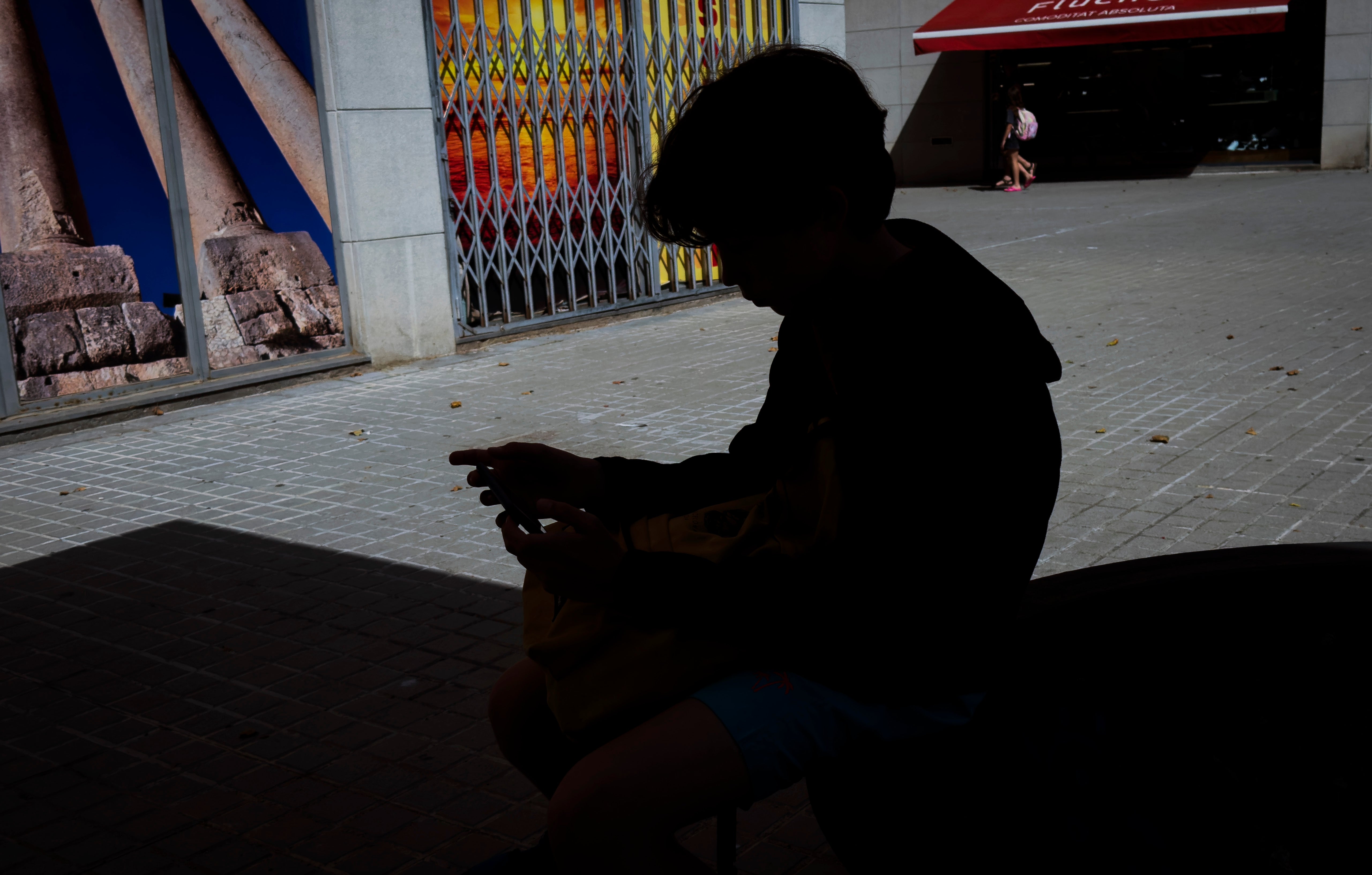Starmer finally outlines new government’s policy on smartphones for under-16s
Starmer has been asked about a smartphone ban for under-16s
Your support helps us to tell the story
From reproductive rights to climate change to Big Tech, The Independent is on the ground when the story is developing. Whether it's investigating the financials of Elon Musk's pro-Trump PAC or producing our latest documentary, 'The A Word', which shines a light on the American women fighting for reproductive rights, we know how important it is to parse out the facts from the messaging.
At such a critical moment in US history, we need reporters on the ground. Your donation allows us to keep sending journalists to speak to both sides of the story.
The Independent is trusted by Americans across the entire political spectrum. And unlike many other quality news outlets, we choose not to lock Americans out of our reporting and analysis with paywalls. We believe quality journalism should be available to everyone, paid for by those who can afford it.
Your support makes all the difference.Sir Keir Starmer has revealed his party’s approach to smartphones for children aged under 16 amid growing concerns about their effects on mental health.
The prime minister was pressed on the issue after the previous Tory government promised to ban mobile phones from schools.
When Rishi Sunak announced the ban previously, he was mocked by Labour.

But despite growing calls for a ban overall for children, Sir Keir has revealed he plans to resist the demands.
Asked by LBC about the issue he said: “In relation to simply banning phones for under 16s, I don't think that's a good idea. I don't think that's a practical way forward.
“But I do think I will sit down with anyone to look at how we'll put in place better protections because all parents and everybody across the country is concerned about what can actually be accessed on a phone.”
Previously, the Children’s Commissioner Dame Rachel de Souza has raised concerns about the effect of mobile phones on children.
She was responding to concerns raised by Esther Ghey, the mother of murdered trans teenager Brianna, about the effects of mobile phones on promoting violence among children.
Dame Rachel said: "The thing with Brianna's mother's vision for a phone for under-16s, there is something really smart there..
"Can we really lean on the Apples and Googles to create phones with access that is safe by design?"
She always thought that a ban was “unlikely”.
Ms Ghey told BBC Breakfast she "would like to see mobile phone companies take more responsibility".
Former Tory MP Miriam Cates has pushed for an outright ban before losing her seat last week.
Responding to an inquest into a 14-year-old’s suicide linked to harmful content on smartphones, she wrote: “Stories like these are every parent’s worst nightmare, but they are becoming more and more frequent. In the UK the suicide rate for 15-19s has doubled for boys since 2010 and trebled for girls. Of course, ‘successful’ suicides are still mercifully rare, but by every conceivable measure of wellbeing — incidences of self-harm, prevalence of negative or depressive feelings, loneliness, feelings of failure — teenage happiness is following a steep downward trend.”
She went on: “Whether it’s the lonely nine-year-old who finds himself with no one to play with because his friends spend their evenings on TikTok, the 14-year-old boy with a devastating porn addiction, the 15-year-old girl groomed bullied into uploading explicit pictures that are sent round the school, or the 13-year-old girl finding 101 ways to become anorexic, smartphone and social media are robbing our children of their childhood.
“No sane society can let this continue. None of these trends are plateauing – the steep lines plotting the misery of our children are still following an upward trajectory. Smartphone ownership continues to rise with 20 per cent of three- to four-year-olds and 55 per cent of 8 to 10 year olds now owning their own phone. Just this week it was reported that British children use TikTok on average for more than two hours a day, a doubling since just 2020. It is thought that an astonishing 60 per cent of young men suffer problematic pornography consumption (average age of first exposure is 13), and half of child sexual abuse is now perpetrated by another child.”

Join our commenting forum
Join thought-provoking conversations, follow other Independent readers and see their replies
Comments